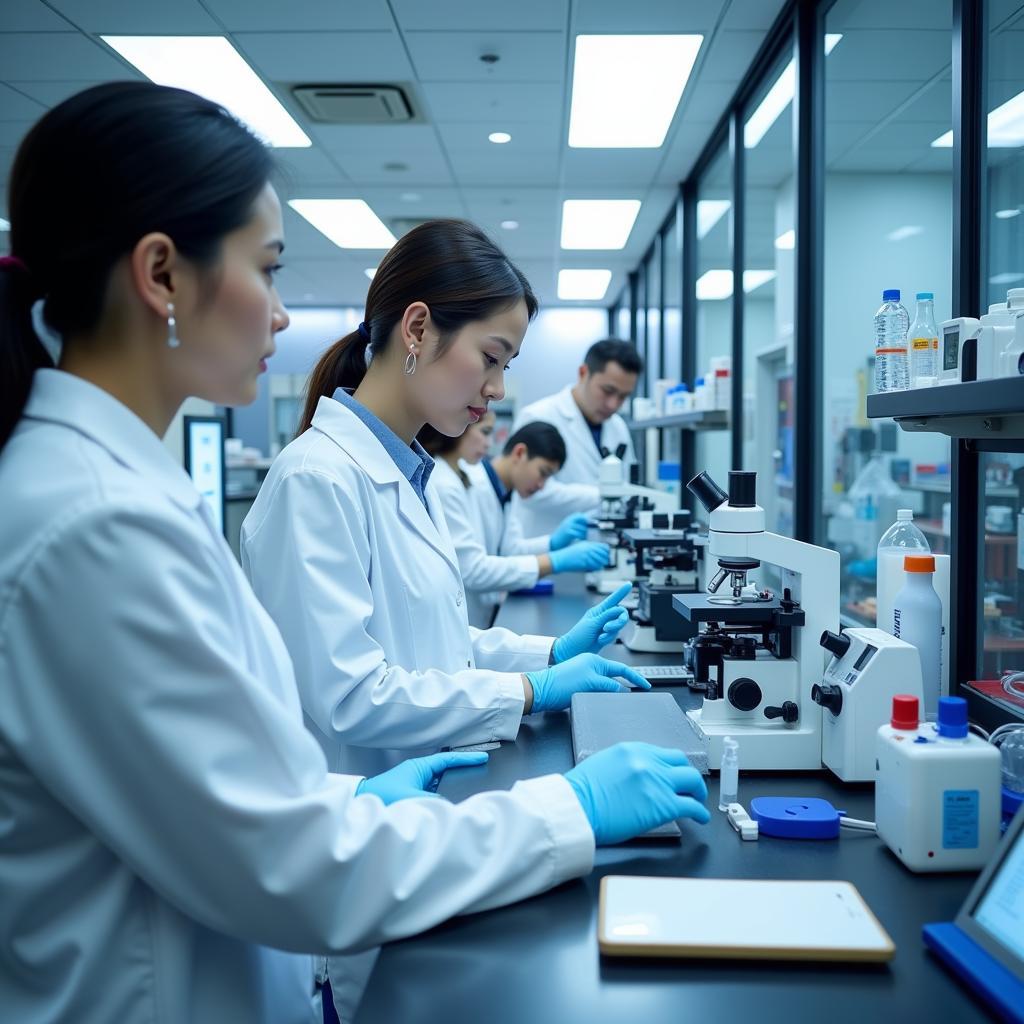Genetic research is rapidly evolving globally, and Southeast Asia, home to the diverse Association of Southeast Asian Nations (ASEAN), is no exception. ASEAN genetic research holds immense potential to revolutionize healthcare, agriculture, and our understanding of human history and migration patterns. This article delves into the exciting advancements and opportunities in this field, exploring its impact on the region and the world.
 Genetic Diversity in ASEAN
Genetic Diversity in ASEAN
The Landscape of ASEAN Genetic Research
ASEAN is a melting pot of ethnicities, cultures, and genetic variations. This diversity presents a unique advantage for genetic research. By studying the genetic makeup of ASEAN populations, scientists can gain insights into a wide range of diseases and develop more effective treatments.
For example, research on the genetic predisposition to certain diseases prevalent in the region, such as thalassemia and dengue fever, is crucial for developing targeted therapies and preventive measures. Understanding the genetic factors contributing to disease susceptibility can lead to more personalized healthcare approaches, improving diagnosis, treatment, and disease management within ASEAN communities.
 Advanced Genetic Research Facility in Southeast Asia
Advanced Genetic Research Facility in Southeast Asia
Applications Beyond Healthcare
The implications of ASEAN genetic research extend far beyond healthcare.
- Agriculture: Genetic research can enhance crop yields and develop pest-resistant varieties, contributing to food security in the region.
- Forensics: DNA analysis plays a vital role in criminal investigations and disaster victim identification.
- Ancestry: Genetic testing is gaining popularity for tracing ancestry and understanding migration patterns, shedding light on the rich history of the region.
Challenges and Ethical Considerations
While the potential benefits are vast, ASEAN genetic research also faces challenges:
- Funding: Securing funding for research projects can be a major hurdle.
- Infrastructure: Developing and maintaining advanced research facilities is essential.
- Data Privacy: Ethical considerations related to the collection, storage, and use of genetic data must be addressed.
Collaborations and the Future
International collaborations are crucial for advancing ASEAN genetic research. By sharing knowledge, resources, and expertise, researchers can accelerate discoveries and address common challenges.
ASEAN has the potential to become a global leader in genetic research. By investing in research and development, fostering collaborations, and addressing ethical considerations, the region can unlock the full potential of this transformative field, bringing about improvements in healthcare, agriculture, and other sectors for the betterment of society.
FAQs
What are some key areas of focus in ASEAN genetic research?
Key areas include research on genetic diseases prevalent in the region, pharmacogenomics (how genes affect drug responses), and agricultural applications of genetics.
How can I get involved in ASEAN genetic research?
Opportunities exist for students, researchers, and professionals. Consider exploring academic programs, research institutions, and organizations involved in genetic research within the ASEAN region.
Need More Information?
For further assistance and inquiries, please contact:
Phone Number: 0369020373
Email: [email protected]
Address: Thôn Ngọc Liễn, Hiệp Hòa, Bắc Giang, Việt Nam
Our dedicated customer support team is available 24/7 to assist you.
